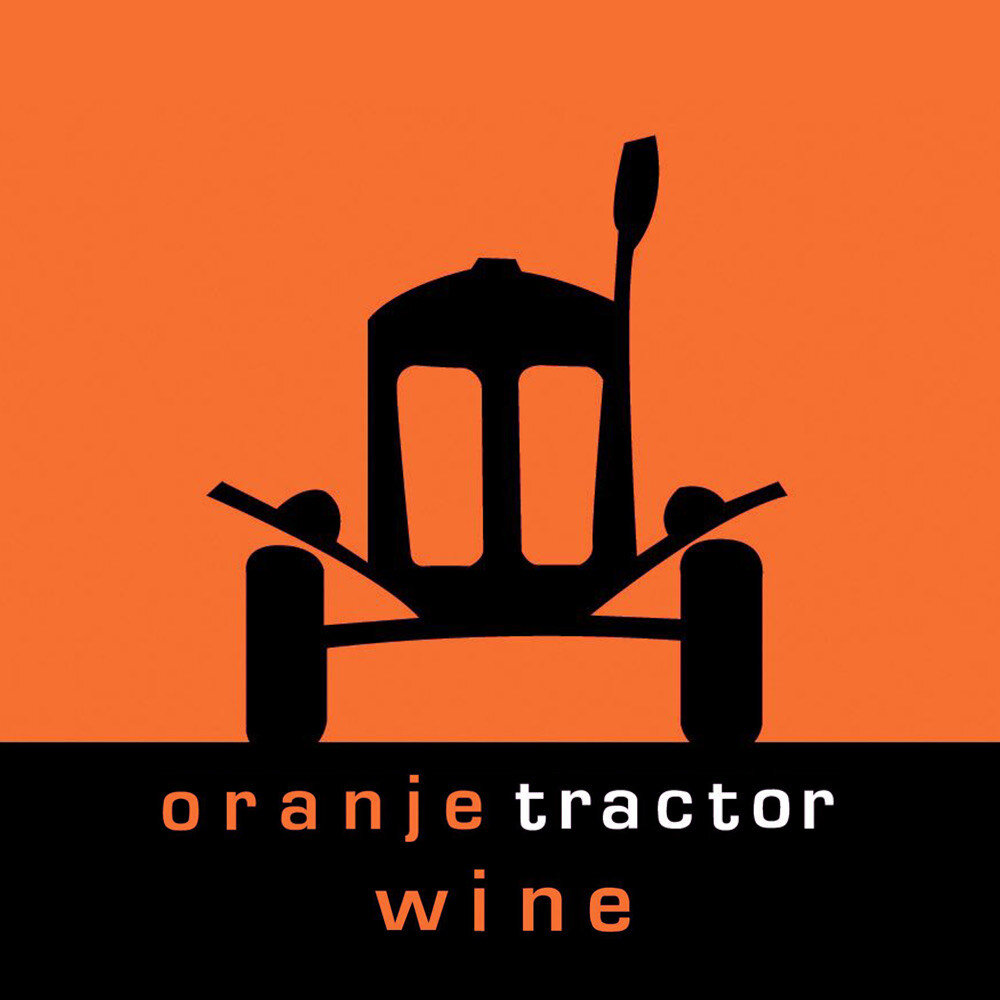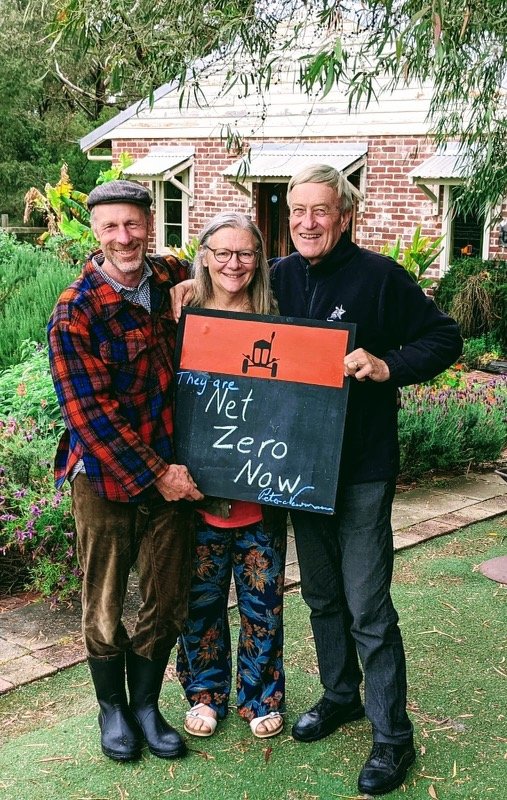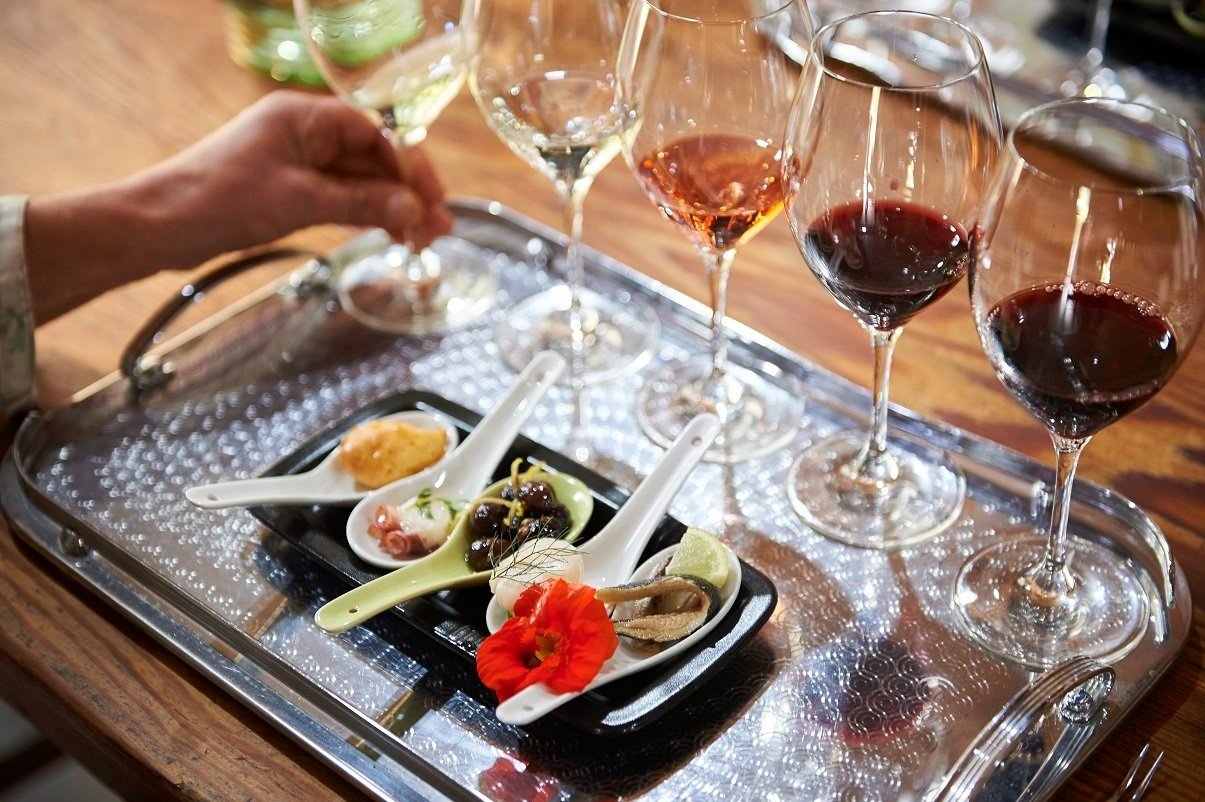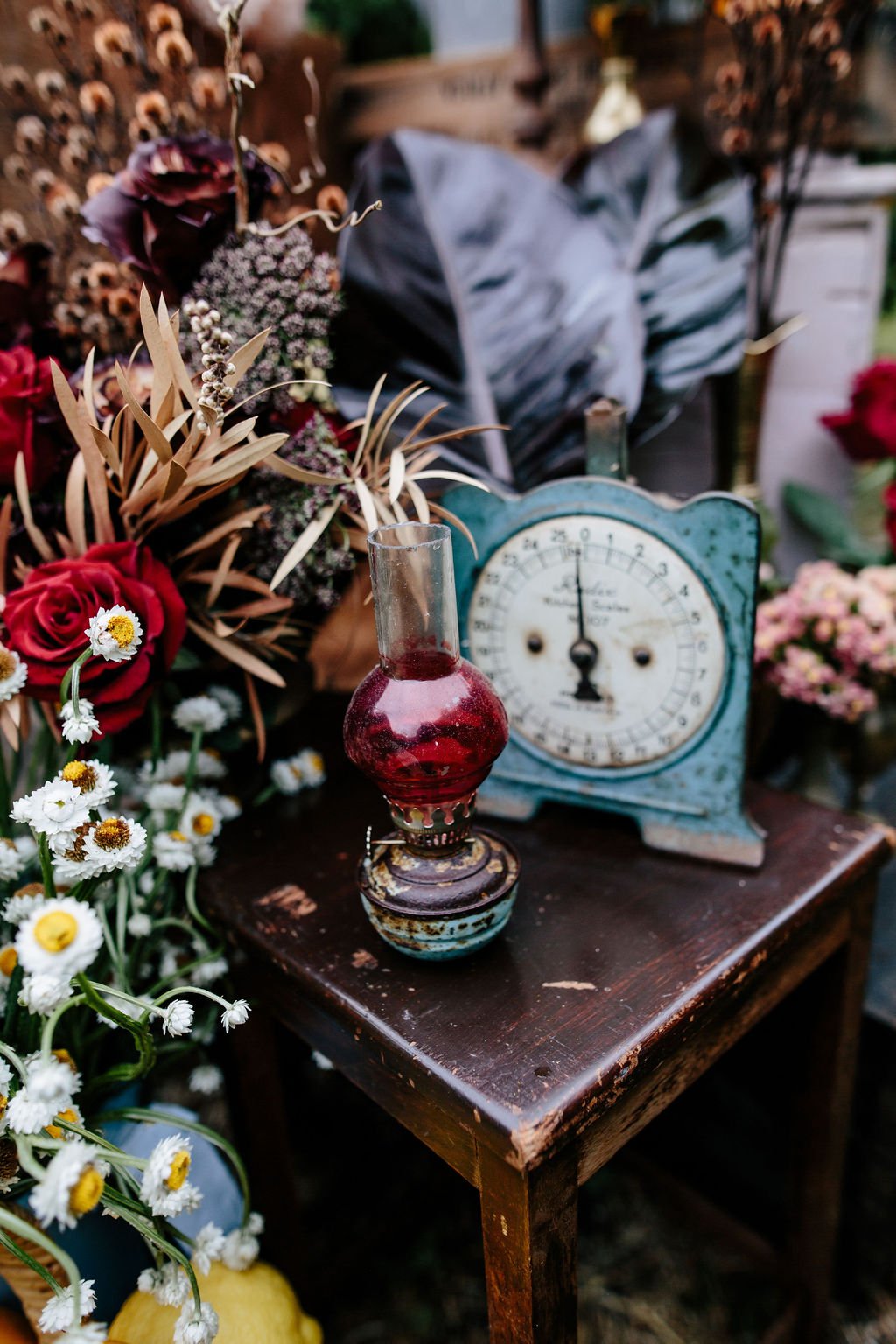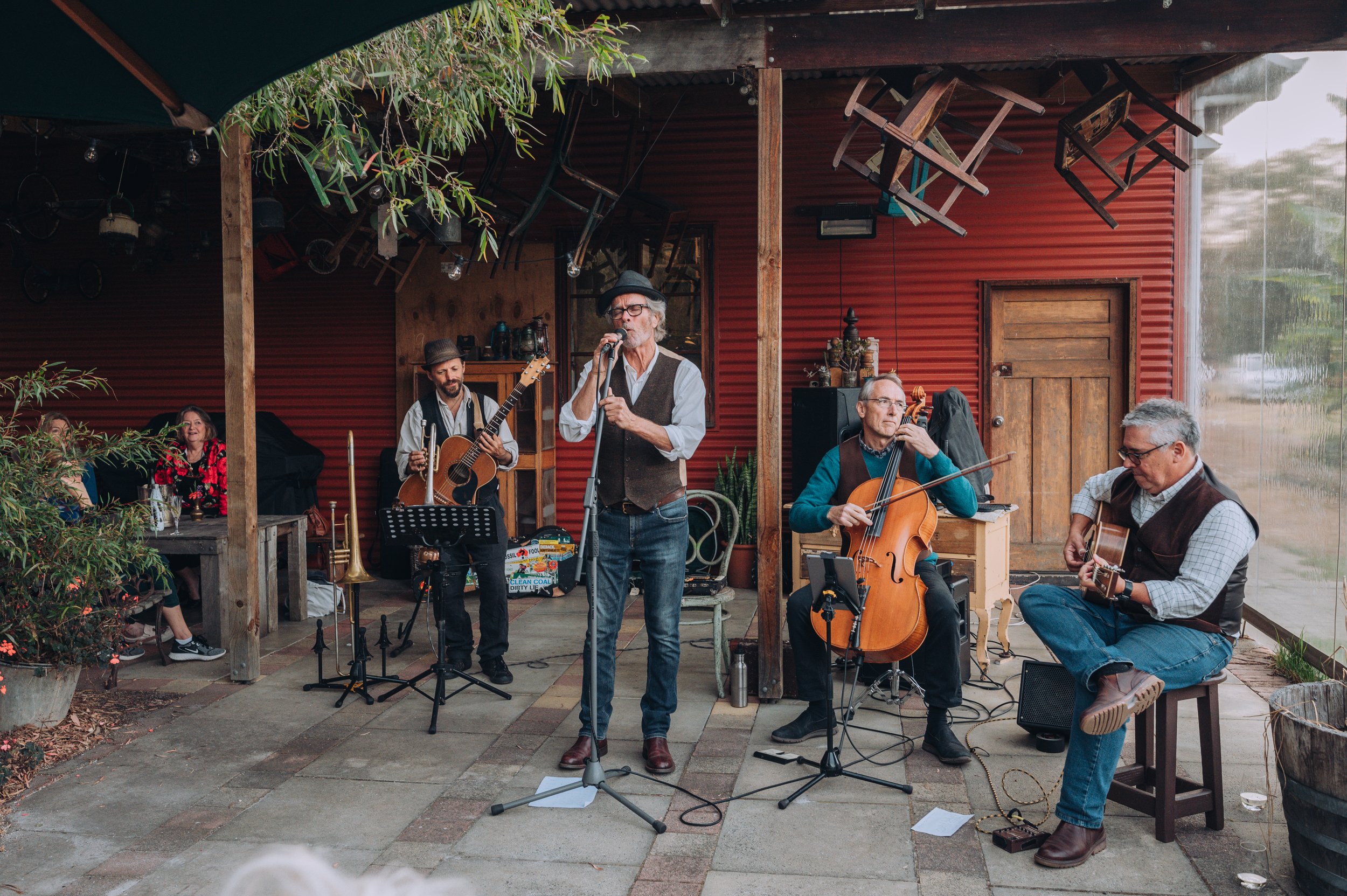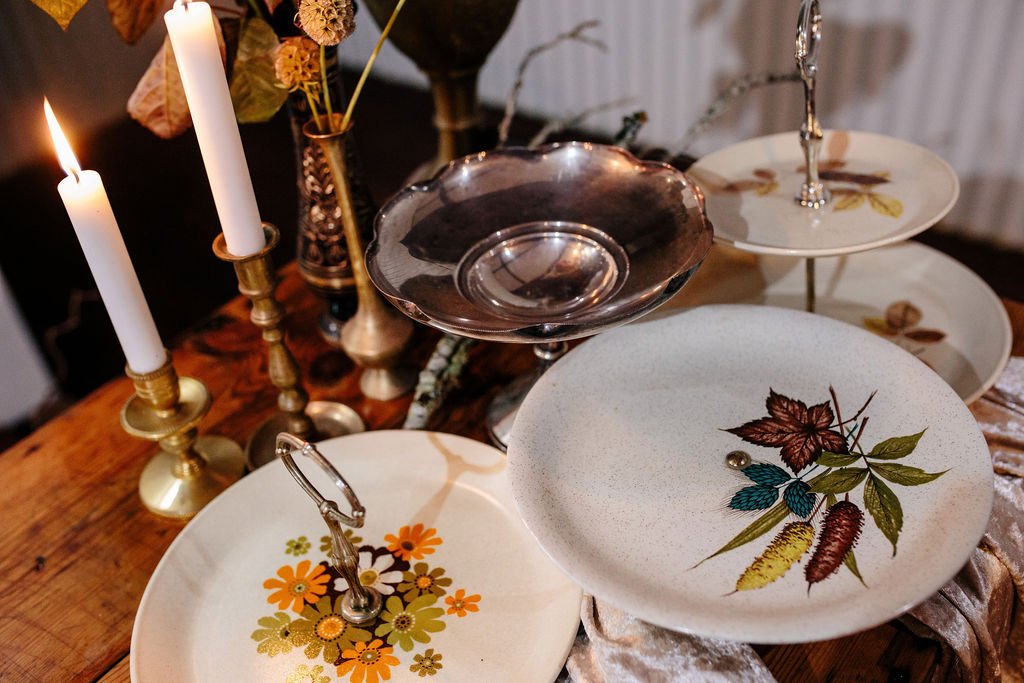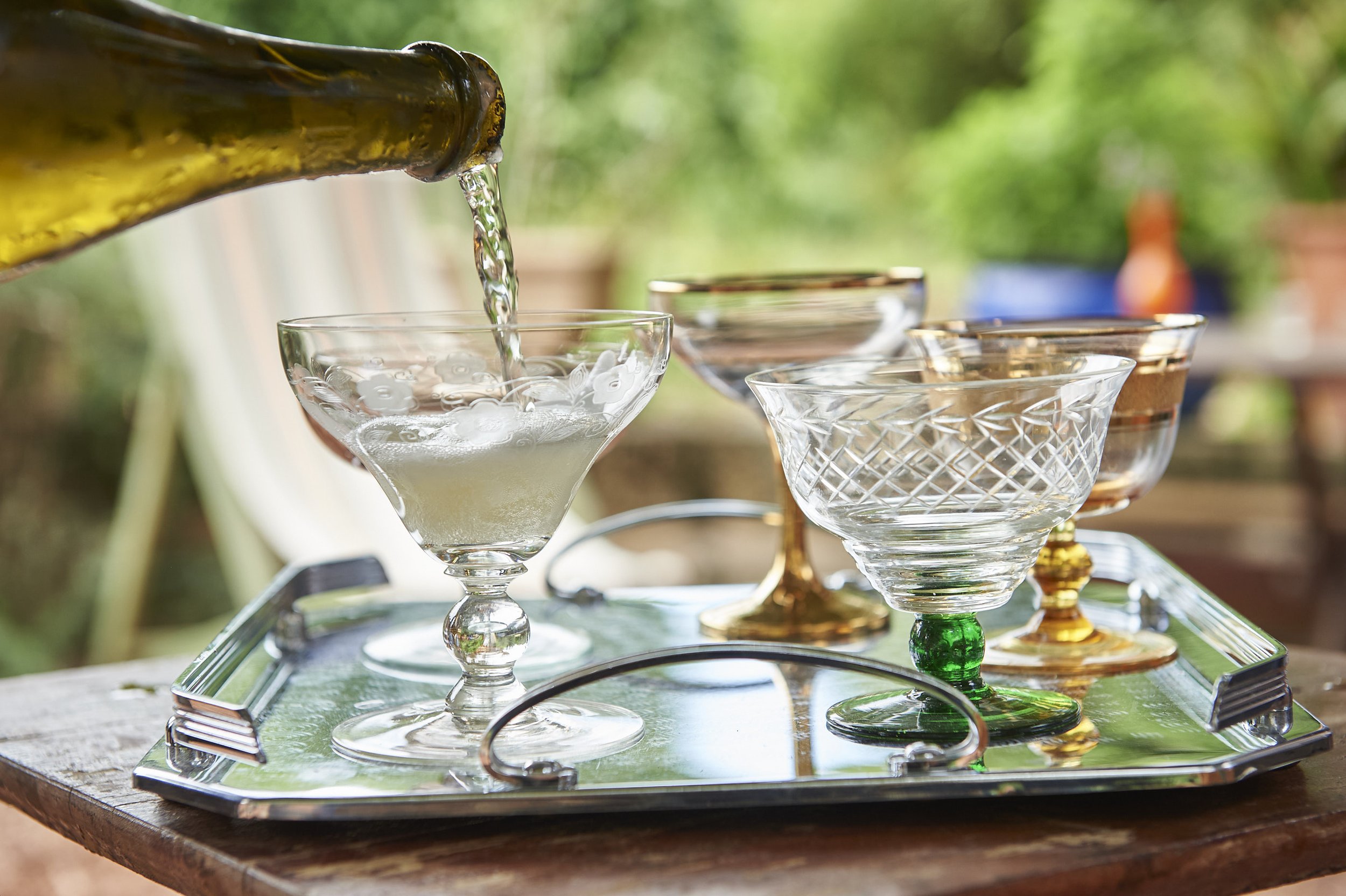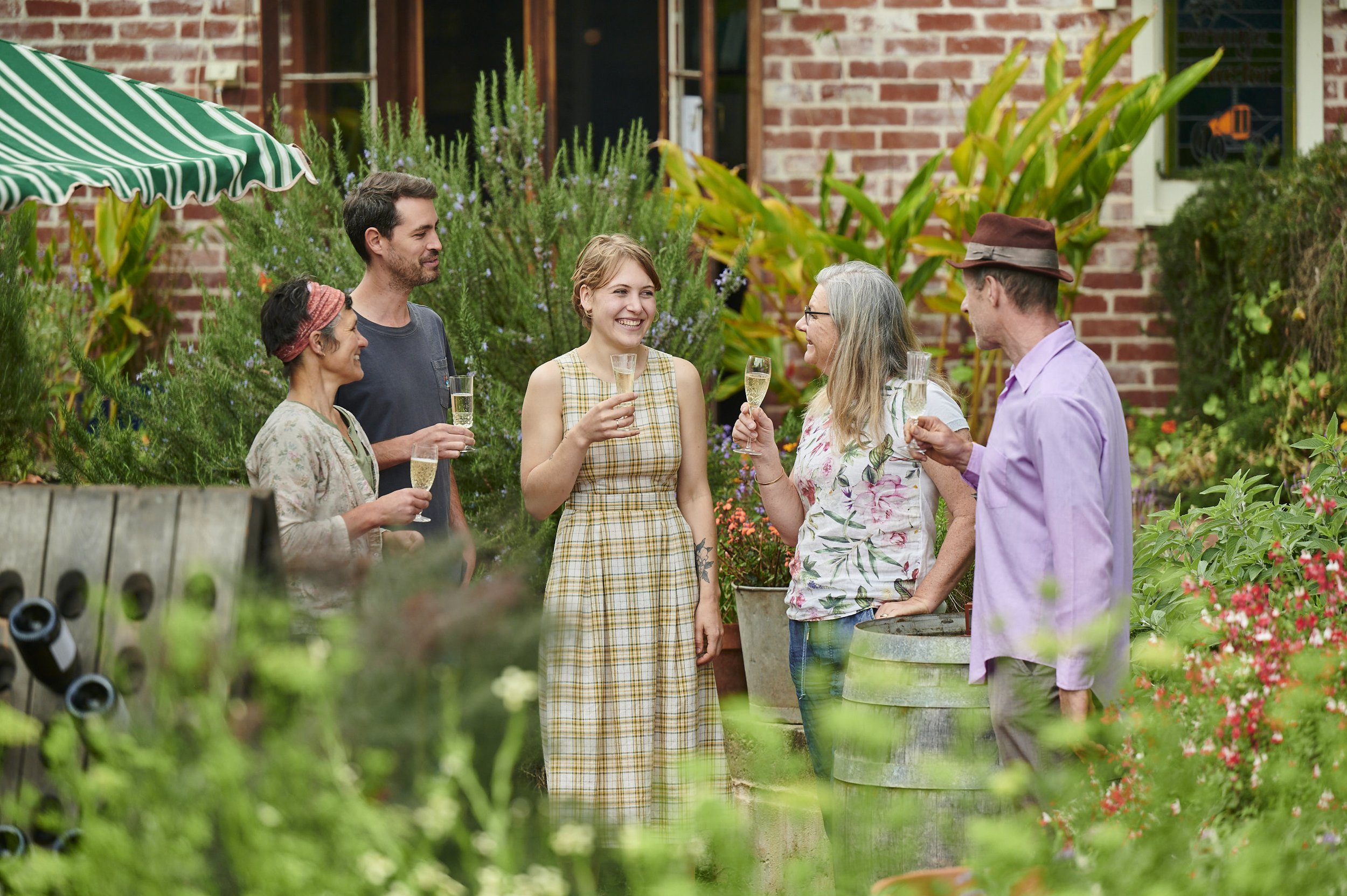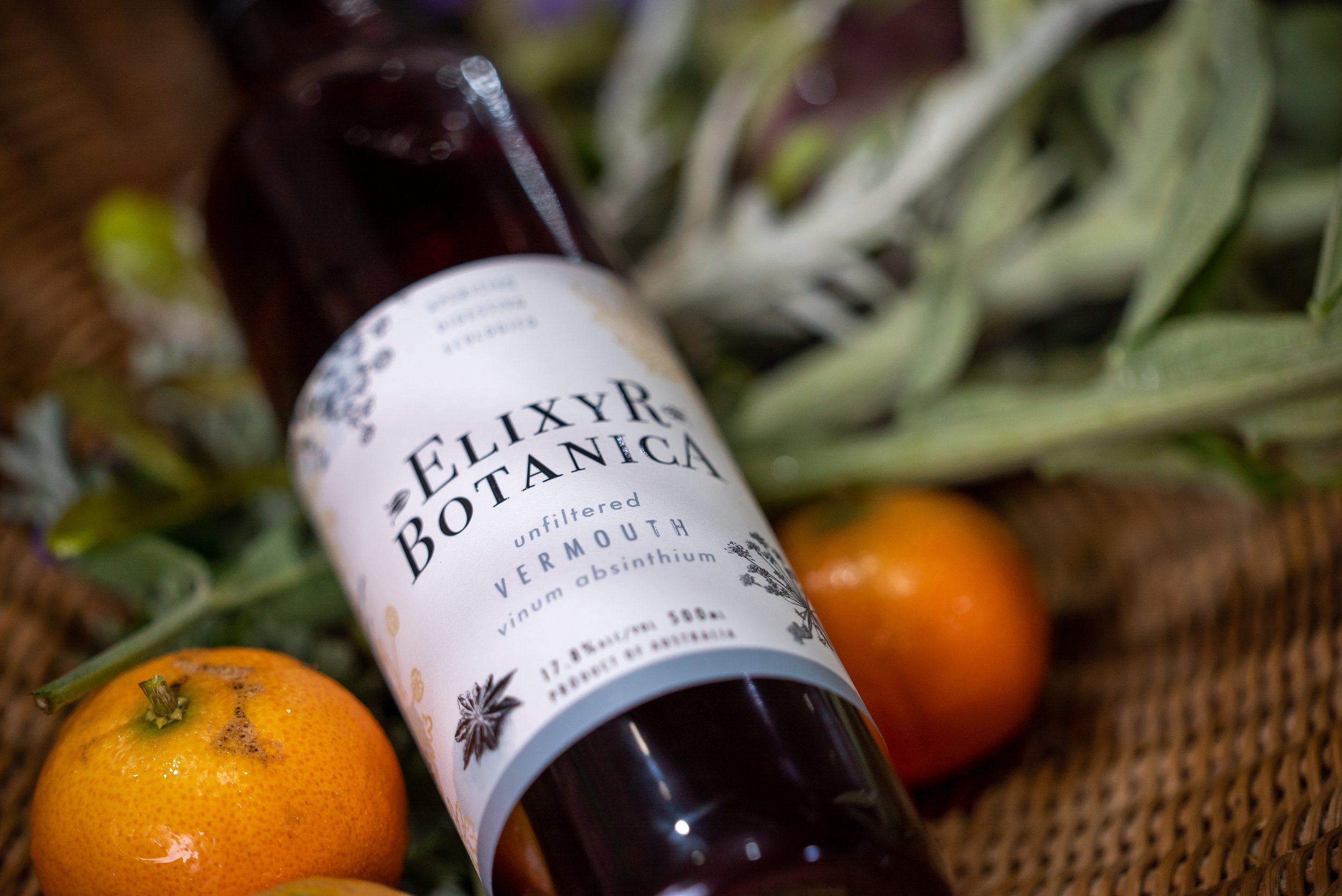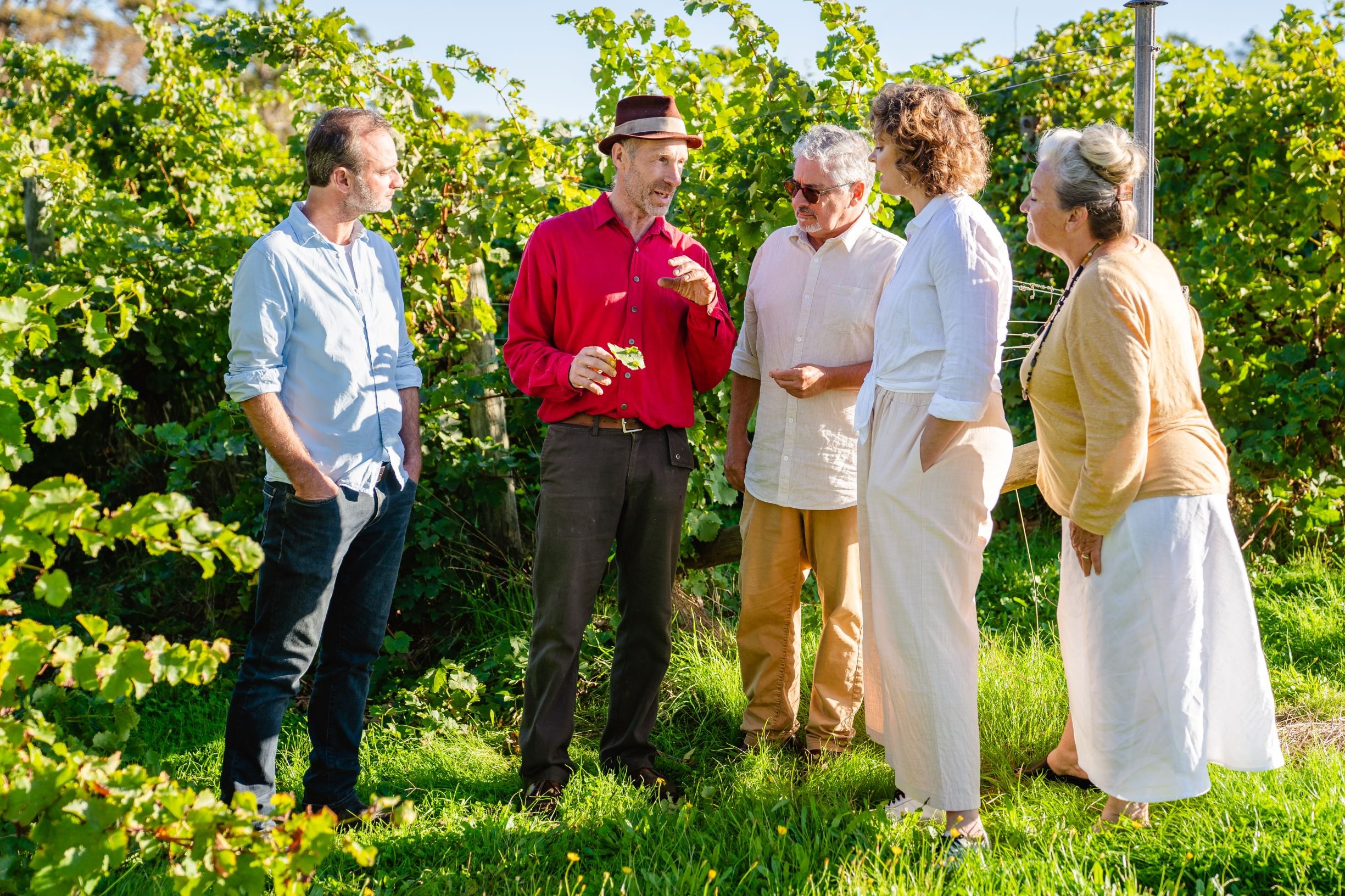Our eco journey
Our organic, Regenerative and net zero Journey…
The Oranje Tractor vineyard was planted (by us, with the help of many friends) in 1998. In 2002 Pam was awarded a Churchill Fellowship to investigate organic viticulture in the US and Europe. This was a great learning experience and after three years, we achieved organic certification in 2005 in our vineyard and Closed Loop Orchard.
We are big fans of Regenerative Agriculture as it extends the organic farming practices we started with. It enables us to tap into nature’s circular ecosystems. Our farming lets the experts, the soil food web, do the work. We plant diverse cover crops in between the vines which attracts a diverse array of microbes that feed on the liquid carbon supplied. In return, the microbes look after the nutrition, pest and disease requirements of the vines. We also avoid the use of a tractor to prevent soil compaction, canes are left on the ground to return nutrients to the soil rather than being removed and burnt.
We stay clear of using synthetic inputs-fungicides, herbicides and pesticides that take down the soil food web. Our focus is on increasing soil carbon levels and the diversity of our soil microbes. You could say we are building our biological bank balance.
In 2019 we won the Albany Chamber of Commerce and Industry Great Southern Business Environment and Sustainability Award and were finalists in 2020 and 2022.
In 2021 we participated in a Landcare Australia funded carbon accounting exercise which revealed our 8H property absorbs 6 times the amount of CO2 (and CO2 equivalents) that our 3H vineyard emits. Couldn’t wait for 2030 to be Net Zero, we are carbon negative now! No offsets needed. Professor of Sustainability, Peter Newman from Curtin University confirmed our Net Zero status in early 2022.
In 2022 we were a case study for Circular Economy WA and the Hon Alannah MacTiernan, Minister for Agriculture, visited to find out about our Net Zero achievement.
Post Growth Australia interviewed Murray about the nuts and bolts of regenerative viticulture. You can listen to the podcast here. The Lower Blackwood LCDC and The South Coast Alliance have both developed case studies about how we farm regeneratively. You can read them here and here.
We were thrilled to be featured on Sustainable Table’s Regenerative Food and Farming Map. This recognition underscores our commitment to sustainable and regenerative practices. more sustainable future.
Our current focus is on plant sap analysis and foliar sprays to correct plant mineral deficiencies and biological foliar sprays to outcompete fungal pathogens such as powdery mildew and brown rot. Copper and sulphur sprays are commonly used in organic systems, but you can take down beneficial microbes as well as the problem ones. Foliar sprays provide the opportunity to suppress disease pathogens and out compete them with other species. We now think of ourselves as Biological Relationships Managers.
regeneration in action
There are many things we are doing to tread lightly on the Earth. Our Organic and Regenerative Small Farm Tours showcase our regenerative farming practices, thus empowering others to grow food and be kind to the planet at the same time.
We achieved organic certification in 2005 for grape and orchard produce which means eliminating synthetic fungicides, herbicides, pesticides and water-soluble fertilisers. Certification also required revegetating 10% of our property. This provides buffers and windbreaks, wildlife habitat, and carbon sequestration. We are on the City of Albany’s and Western Power’s No Spray Register, so synthetic herbicides do not drift onto our property.
Our cellar door was built with recycled bricks, doors, windows, weatherboards, roof timber. We have 5kW of of photovoltaic cells. All furnishings and décor has been upcycled or recycled. Since 2016 our wine glasses, water glasses, carafes, serving trays, crockery and cutlery purchases have been second hand/preloved. All organic waste, including grape marc, is diverted from landfill by composting on site. Green waste is mulched on site and used as mulch and fertiliser. Fallen trees and limbs are not collected and burnt thereby sending carbon into the atmosphere. A small amount is used for firewood in our tasting room, house and pizza oven, most of it placed under trees as ‘big woodchips’.
All glass, glossy paper, metal and plastic is recycled. Soft plastic including pallet wrap wine is taken to supermarket recycling bins. Wood for our cellar door heater and wood fired pizza oven is grown onsite. 100% recycled paper is used for tasting promotional materials, napkins and toilet paper. We no longer print marketing brochures. We have replaced plastic packaging tape on our wine boxes with 100% biodegradable tape. All cleaning products used are environmentally friendly and purchased in bulk using in recycled glass containers. We offer $1 for wine bottles that are returned to us.
Produce for the tasting room and functions is either grown on site or locally sourced which reduces carbon related transport emissions. We have switched from gas to an induction cooktop. Our POS is paperless and recycled bags or boxes are used for take away wine and fruit sales.
We hire bike racks to the City of Albany for community events enabling people to cycle to events and securely store their bicycles, rather than drive fossil fuel burning cars. We also have a Vintage Hire business which is an extensive collection of preloved items that can be hired for weddings and other celebrations, thereby reducing single use items that can end up in landfill. Our Eco Weddings Packages ensure celebrations don’t have to be at the expense of the planet. Click here for more details.
We also provide free electric vehicle charging for cellar door visitors.
Images: Krysta Guille Photography, Lauren Sprigg Photography, Lee Griffith Photography, Charlie Hargroves, Base Imagery, Francis Andrijich/The Negri, Ben and Ebony, Cherry on the World.
